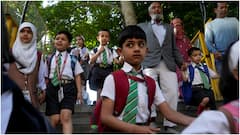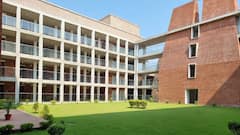Vernacular Education: How Studying In Own Language Can Enhance Learning Outcomes for Students
Education is a powerful equalising force, but many Indian students face challenges due to different languages being used in schools and home. Vernacular learning is a way to overcome this obstacle.

By Rohit Kumar Gupta
Education serves as a powerful equalising force because it is capable of dismantling barriers and fostering opportunities for individuals across diverse backgrounds. Therefore, it must be ensured that all individuals are given equal opportunities to succeed. Many Indian students face a significant challenge due to the disparity between the language used in schools and their primary language spoken at home. This obstacle can be overcome when these languages are the same.
Some of the most competitive exams like JEE, NEET and UPSC have a broad linguistic reach to accommodate the diversity of students across India. The National Testing Agency (NTA) conducts these exams in 13 languages, including Bengali, Gujarati, Kannada, Marathi, and Telugu, and this aligns with India's ethos of diversity and inclusion, providing a fair and accessible platform for students from various linguistic backgrounds to pursue higher education and career opportunities. According to NEET 2023 language-wise registration data, as many as 1,38,368 candidates registered for NEET in regional languages such as Bengali, Gujarati, Kannada, Marathi, Tamil, Telugu, and others, emphasising the increasing acceptance of regional languages in significant educational contexts.
Recent years have witnessed a growing recognition of the importance of preserving and promoting indigenous languages. As per a Google Search report, 90% of internet users in India prefer to use their local language to search and carry out tasks online. This resurgence of vernacular learning is driven by several factors, including cultural pride, accessibility, and the realisation of the cognitive benefits of learning in one's mother tongue.
ALSO READ | Bihar District Judges Exam: SC Upholds Minimum Marks Criteria In Interview For Selection
How Vernacular Learning Empowers Diversity
According to recent data, urban areas exhibit a higher literacy rate of 87.7% compared to rural areas that stand at a literacy rate of 73.5%. Embracing vernacular learning lays the foundation for better academic outcomes and guarantees cognitive benefits for its learners. Whil subtly overcoming the biggest challenge of high student-teacher ratio (especially in rural areas), it is gradually democratising education by maintaining accessibility and ensuring learning and understanding.
NEP 2020 And Vernacular Learning
The National Education Policy (NEP) 2020 emphasises the importance of multilingualism and encourages the use of mother tongues or regional languages as mediums of instruction, at least until Grade 5. The NIPUN Bharat Scheme has been launched with an aim of achieving 100% Foundational Literacy and Numeracy (FLN) proficiency among Grade 3 students by 2027. Additionally, initiatives such as language revitalisation programmes and the development of vernacular teaching materials are gaining traction across the country.
Vernacular Learning Is Showing Growth In Demand
Ed-tech platforms are witnessing a significant growth in student enrollments in Hindi medium batches, indicating a surge in demand for delivering online content in Hindi. The student base for vernacular languages has seen massive growth, with Marathi, Bangla, Gujarati, Kannada, and Telugu being India's most in-demand vernacular languages.
Regional Content-Driven Education & Challenges
The distinction between academic English and everyday conversational English inherently underscores the benefits of regionally focused content-driven education. This makes learning more enjoyable and effective, as well as helps in building student confidence.
As India embarks on creating a more inclusive, equitable, and outcome-driven education system for the 21st century, the rising demand and adoption of vernacular learning solutions is emerging as a transformative force. By imparting quality education through mediums that resonate with the cultural identities of students, the nation is taking a significant stride towards its greater goals of democratizing access to education and unlocking the true potential of every student, simultaneously fostering social cohesion.
However, while the rise of vernacular learning represents a positive shift, challenges remain. Ensuring the quality and consistency of vernacular education, especially in remote areas, requires concerted efforts from policymakers, educators, and communities alike. Additionally, there is a need for greater recognition and support for teachers proficient in local languages, as well as continued investment in vernacular teaching resources and infrastructure.
Rohit Kumar Gupta is the Chief Academic Officer at Physics Wallah, an ed-tech platform.
[Disclaimer: The opinions, beliefs, and views expressed by the various authors and forum participants on this website are personal and do not reflect the opinions, beliefs, and views of ABP Network Pvt. Ltd.]
Education Loan Information:
Calculate Education Loan EMI
Related Video
Delhi Election Results 2025: Counting Begins; BJP Poised for Historic Comeback in Delhi, Exit Polls Suggest | ABP News






































